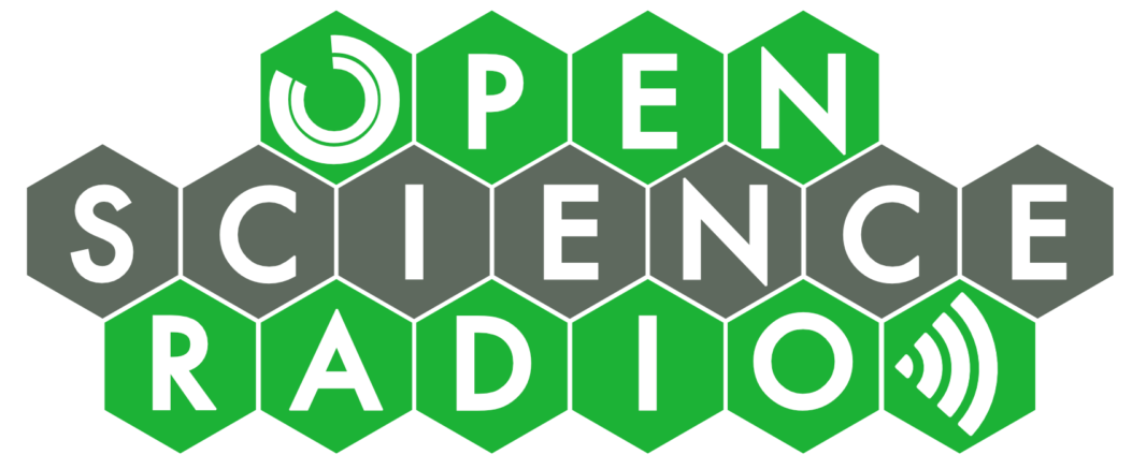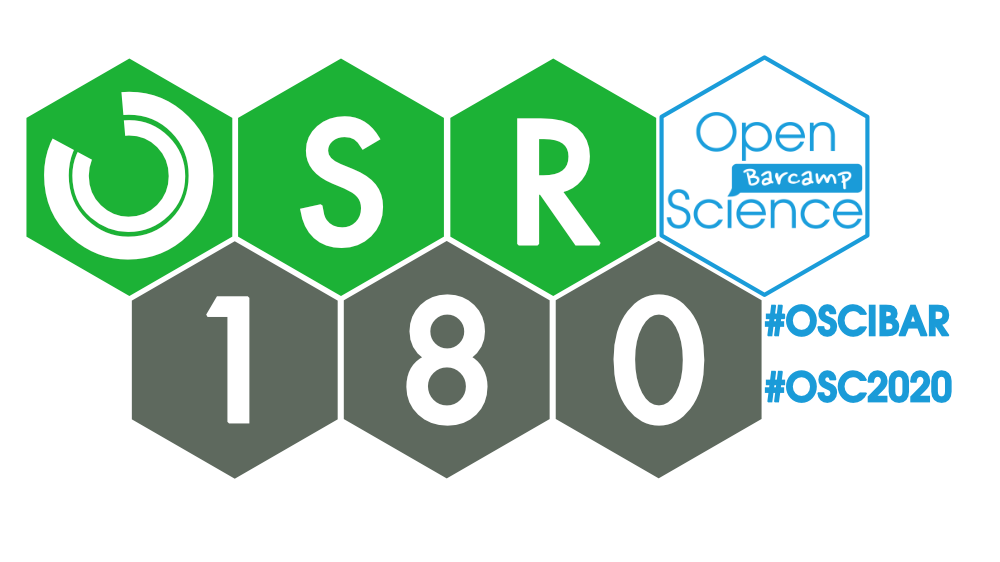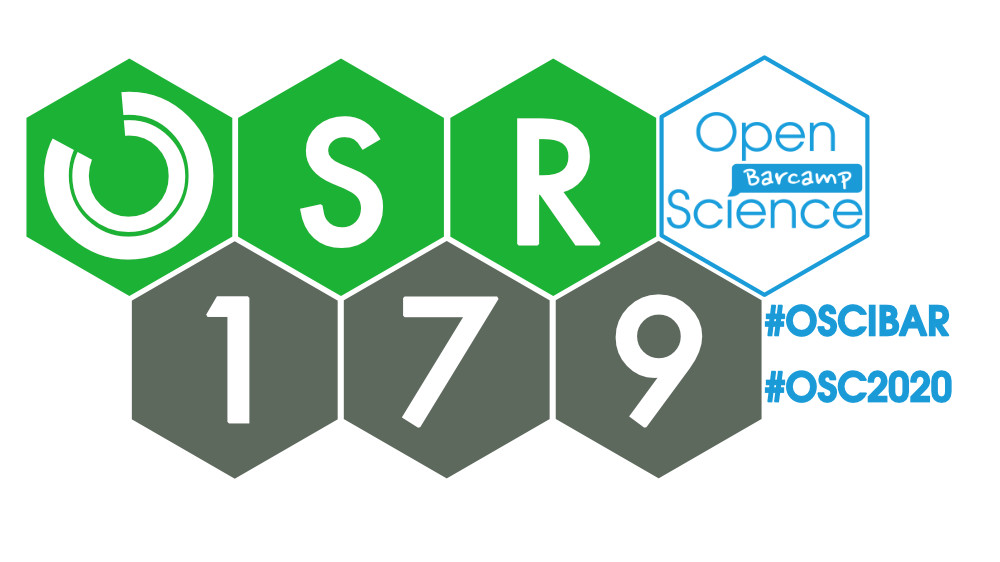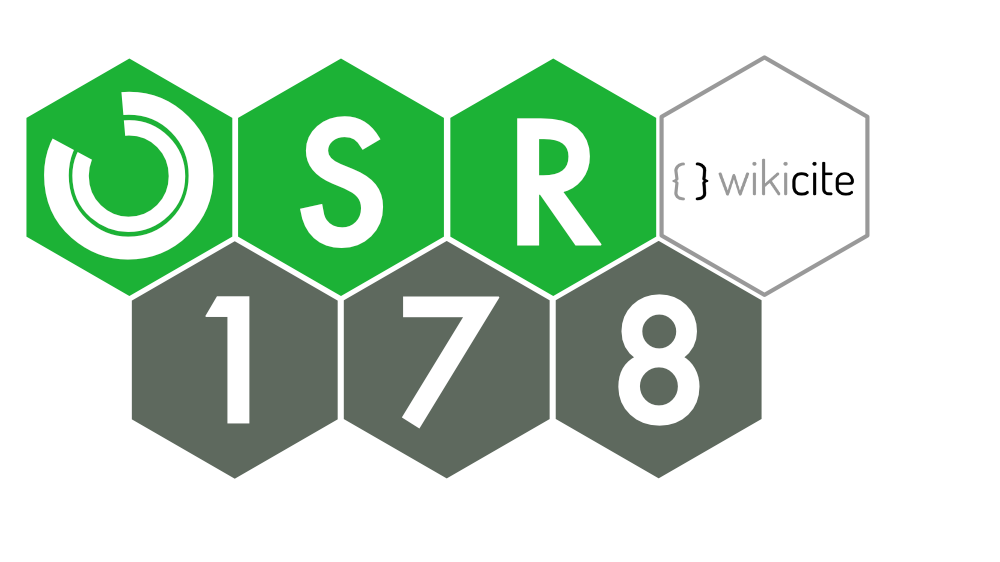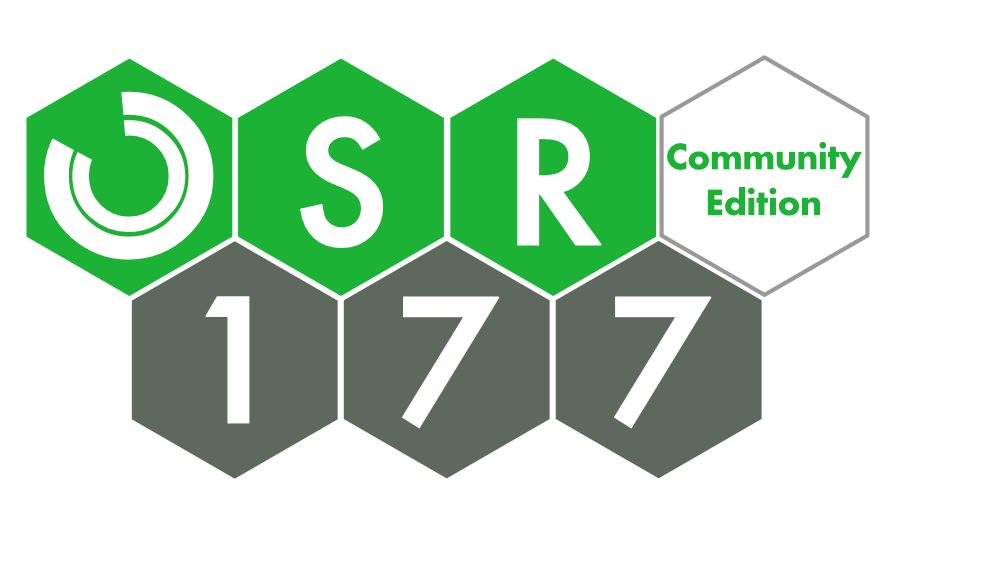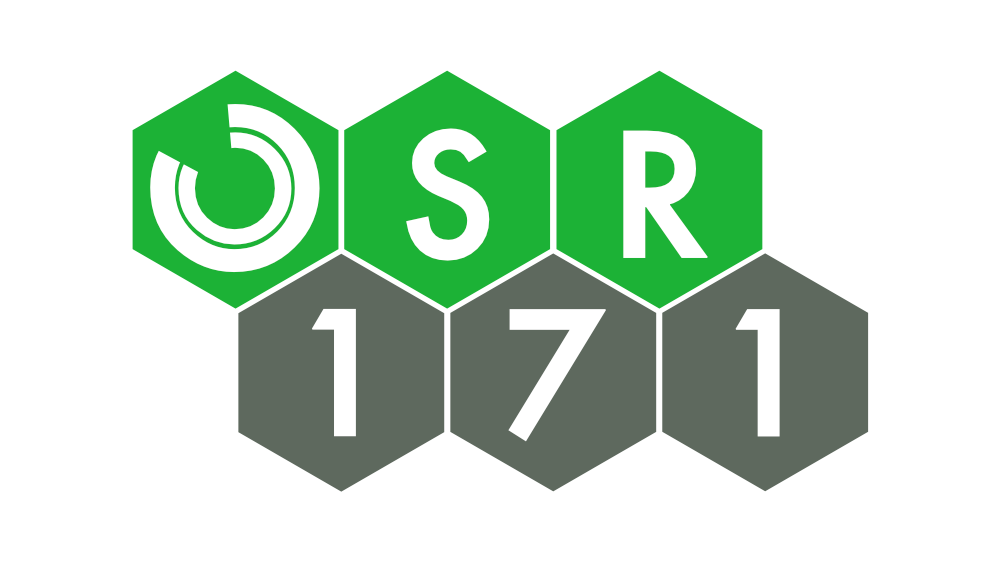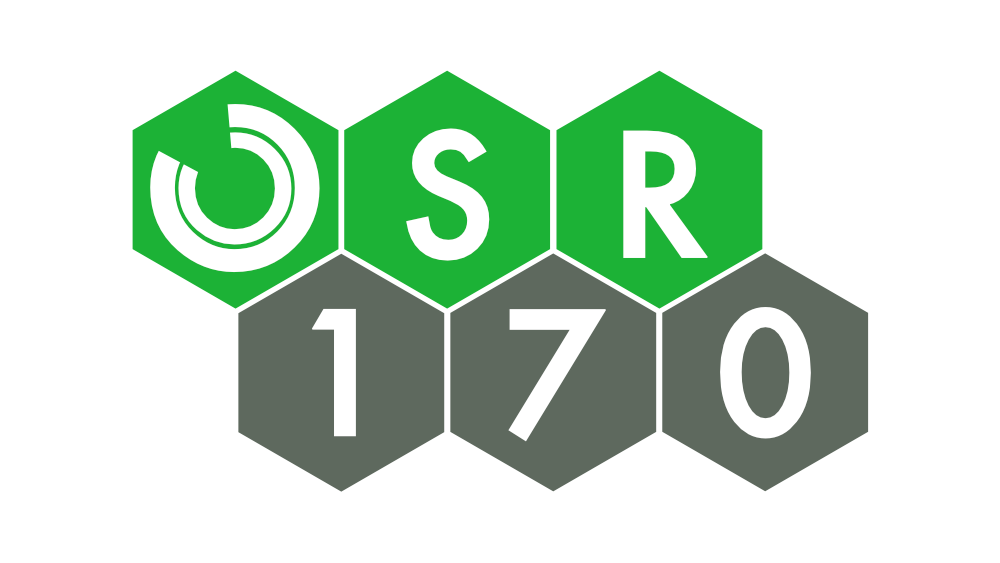This is another episode from our coverage of the Barcamp Open Science. In this episode Konrad talked with Moritz Schubotz about the session he moderated on how research software can be discovered and credited.
Alle Artikel in English Episodes
OSR179 Intro Barcamp Open Science 2020 #oscibar [EN]
As usual in March, the Barcamp Open Science took place in Berlin (this year on the 10th of March) and Open Science Radio was again (for the sixth time) supporting the Barcamp Open Science in documenting the event. As last year we had Bernd Rupp from the Wirkstoffradio Podcast supporting us with recordings and interviews. This short episode will give a you a quick welcome and introduction with Konrad, Guido Scherp and Bernd Rupp.
As you can imagine, the current developments around the COVID-19 outbreak have also affected us, so please excuse the significant delay and posting these recordings!
re episodes to come, so stay tuned! Enjoy!
OSR178 WikiCite 2020 – Satellite Cologne Preview [EN]
Following the international WikiCite conferences in 2016, 2017 and 2018 the first WikiCite Satellite conference will take place this year in Cologne, Germany. It is organized by ZB MED – Informationcenter for Life Sciences, GESIS – Leibniz Institute for the Social Sciences and TH Köln – University of Applied Sciences and will take place May 6th – 8th 2020 at GESIS in Cologne.
„The event aims to connect local library institutions and academic researchers with the WikiCite community in their shared interest in an open infrastructure about open citations and linked bibliographic data for research and education. WikiCite is a growing bibliographic knowledge base connected to projects of the Wikimedia Foundation such as Wikipedia and Wikidata.“
Listen in to Konrad and Philipp Schaer sharing some information and their expectations. Enjoy!
OSR177 Community Edition: Perspectives on Citizen Science from Ecuador, Africa and Small Island Developing States [EN]
We have the pleasure to present to you another Community Edition of Open Science Radio, this time kindly provided by Claudia Göbel.
So this episode brings together three experiences of doing research in cooperation between people from inside and outside academic institutions in different settings in the global South:
– How can Citizen Science build on traditions of participatory research in Latin America? Soledad Luna has pushed Citizen Science activities for research and conservation in Ecuador.
– What is Africa OSH and how is it related to Europe? Thomas Mboa works on open and participatory research, DIY biology and cognitive justice with the Association for the Promotion of Open Science in Haiti and Africa (APSOHA) and MboaLab.
– What challenges are involved in getting rare data for monitoring climate change? Khalissa Ikhlef looks after the Sandwatch project for beach monitoring in Small Island Developing States (SIDS) and coastal countries at UNESCO.
This podcast is the edited recording of the “Story Café” workshop that was held as preconference event to the international conference on Citizen Science in June 2018 in Geneva. The workshop was realized by Claudia Göbel as part of her work for the European Citizen Science Association, which organized the conference, in the context of the EU-funded project “Doing-it-Together science” (2016-2019). We hope these stories can be more than just tokens in a structurally unequal conversation and inspire others to share their experiences, listen closer and critically interrogate the global nature of knowledge production, research policy as well as our very personal role within them.
OSR171 Voices from de-RSE Conference 2019 [EN]
In the first week of June, the first Conference for Research Software Engineering in Germany (deRSE2019) took place in Potsdam, organized by the German Gesellschaft für Informatik (Fachbereich Softwaretechnik) and the German Association for Research Software Engineers (de-RSE). The conference was addressing research software and the people behind it within the German research landscape and aimed to get those diverse group of people together. Over the 3 days there was a multitude of talks – for a number of them recordings will be published by de-RSE.
Since Konrad was participating, he was so kind to collect some voices from the conference floor(s) and a record a short wrap-up with the two conference chairs Carina Haupt and Stephan Janosch.
OSR170 Don’t Leave It To Google! – Research Infrastructures [EN]
One of the aspects that continuously pops up in our discussions is the research infrastructure. Hence, it was about time that we make it a topic of its own and we’re glad that we could win Peter Kraker as a guest for this topic. Peter is well-known in the Open Science communicator, as a researcher but also as the founder and chairman of Open Knowledge Maps, a web-service that provides a visual interface for the exploration of scientific topics through publications. In addition, he is active in several organizations and initiatives dealing with research infrastructure and research data management, such as GO FAIR. With the launch of Google’s dataset search service last year he started the Don’t leave it to Google! campaign. In this episode we’re talking about the campaign, the overarching concept of research architectures and the Open Knowledge Maps as a specific example.
Have fun!
